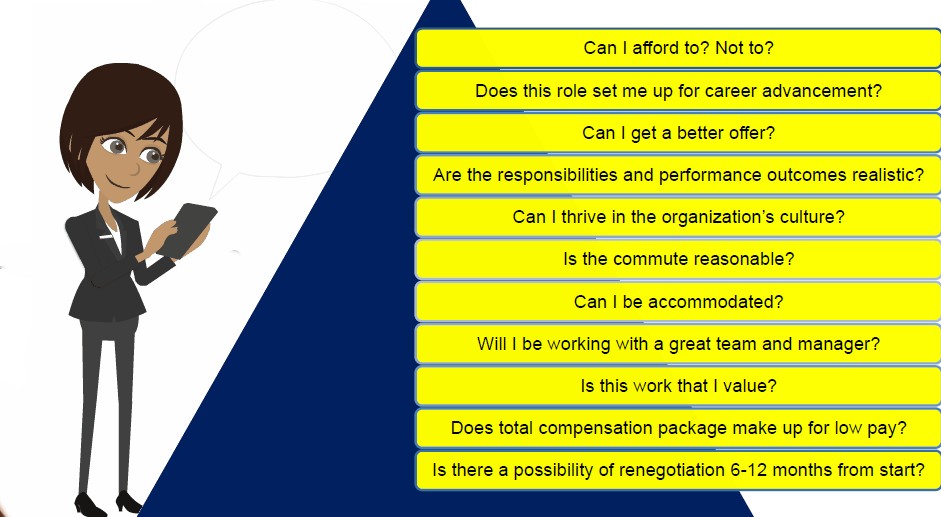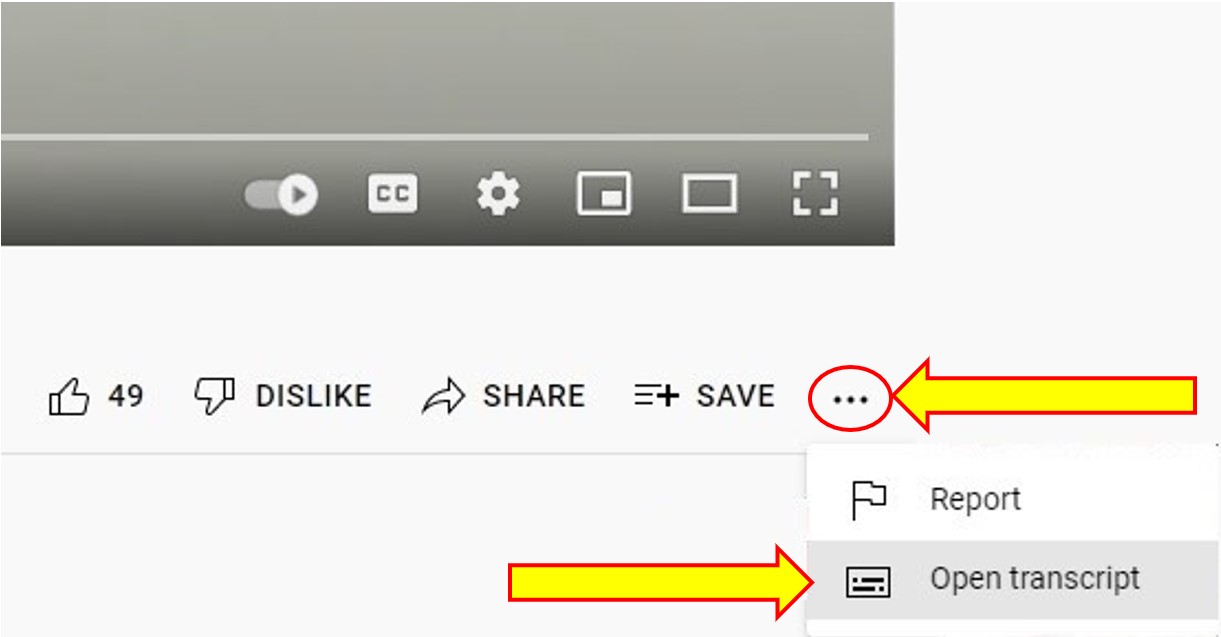Module 03: Job Search
3.11 Accepting Offers and Handling Rejection

Did you know that you can negotiate job offers with employers? Accepting the offer may include: confirming the starting dates, salary negotiation, and other terms of the employment contract.
A survey by Salary.com revealed that:
- 67% of job seekers never negotiate their salaries
- 7% of women attempted to negotiate their first salary, while 57% of men did
- Those who negotiated were able to increase their salary by an average of over 7%
Here are some tips to help you negotiate job offers. Prior to sending a written offer, employers may contact you by phone to negotiate details including start date, terms of employment and salary rate. Provide the details and also inquire as to whether the employer can send you the details via email.
- Confirm before the deadline. Write an email with a clear subject conveying that you appreciate the offer and indicate your willingness to accept it
- Present your research. Research the salary range for the position on jobbank.gc.ca or glassdoor.ca to provide context
- Start with a higher salary rate but be prepared to be flexible.
- Don’t forget to clarify benefits and other relevant compensation
Dear Ms. Smith,
Thank you for getting in touch! I’m very excited for the opportunity to work at New IT World as an Office Administrator. With 3 years’ experience in coordinating office operations, I’m certain that I will achieve great results for the organization. Before I sign the offer, however, I would like to discuss the base salary. According to my research, the average salary for comparable positions in the Office Administrator area is in the $20-$35/hr range.
I would like to discuss the possibility of moving the offer closer to $28/hr. Again, I am thrilled to have been offered this position. I look forward to speaking with you again soon.
Sincerely,
Jane Career
Choosing from Multiple Offers
Are you feeling indecisive or guilty when determining which offer suits you best? You can also use the multiple offers as an opportunity to negotiate your salary.
Here are some factors to help consider when making your decision.

Below is a sample of a offer decline letter which demonstrates professionalism and maintains connections:
Dear Ms. Smith,
I’d like to thank you for the offer of the Administrative Assistant role at ABC Company. I enjoyed meeting the interview panelists and was really looking forward to contributing to innovation at ABC.
After much consideration, I have decided to continue my job search. It was a pleasure working with you in the application process. I wish the team the best as they continue to set standards of excellence in the industry. Please let me know if you have any questions or would like to discuss anything further.
I look forward to connecting on LinkedIn and hope you’ll accept my invitation.
Best Regards,
Jane Career
Handling Rejection
Transcript
To Access the Video Transcript:
1. Click on “YouTube” on the bottom-right of the video. This will take you directly to the YouTube video.
2. Click on the More Actions icon (represented by three horizontal dots)
3. Click on “Open Transcript”

![]() Self-reflection
Self-reflection
Over the course of your job search, you’re likely to face rejection. In the video, Jia Jiang adventures boldly into territory so many of us fear: rejection. By seeking out rejection for 100 days — from asking a stranger to borrow $100 to requesting a “burger refill” at a restaurant — Jiang desensitized himself to the pain and shame that rejection often brings and, in the process, discovered that simply asking for what you want can open up possibilities where you expected to find dead ends.
- What did you learn from Jia Jiang’s story?
- Keep reaching out and be bold in your job search campaign. You’ll learn and grow and find the job that’s been waiting for you.
Stay motivated with these five tips:
- Get Specific with your To-Do List: Start with small tasks. What’s one great way to instantly make your search seem more manageable? Rework your to-do list to include smaller, more specific tasks.
- Locate Career Mentors: Ask people to share a bit about how they got to where they are and for advice which could be applicable to your own job search.
- Seek Constructive Criticism from your Supporters: That supportive former co-worker, a professor who believes in you, or a friend who just gets you, each is familiar with a piece of you. So, if you’re feeling like you’re trying everything but still getting nowhere, try asking supporters for some constructive feedback.
- Put your Career Goals on Paper. Take some time to make a list of your aspirations, big and small. Putting them on paper will force you to think about what you want to achieve with your job search.
- Take Days Off: You may find yourself getting burned out with job-search-related activities. Be sure to intermittently take a few days off to recharge and refocus on self-care.

